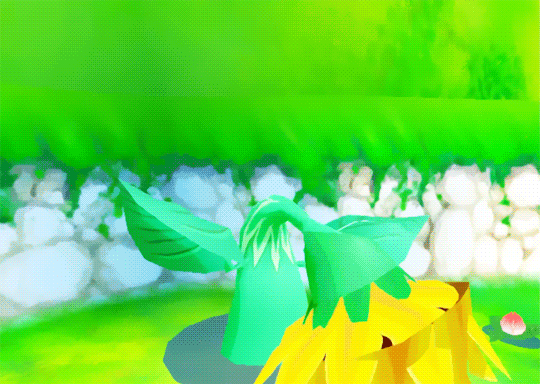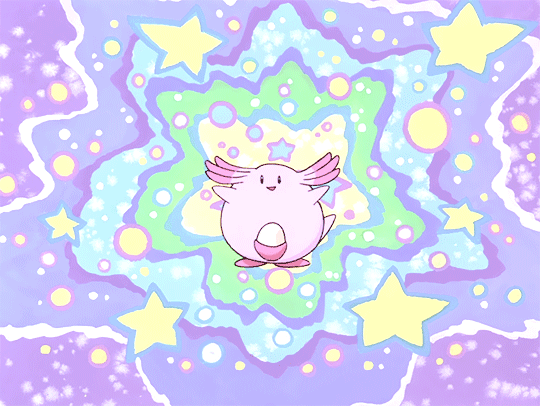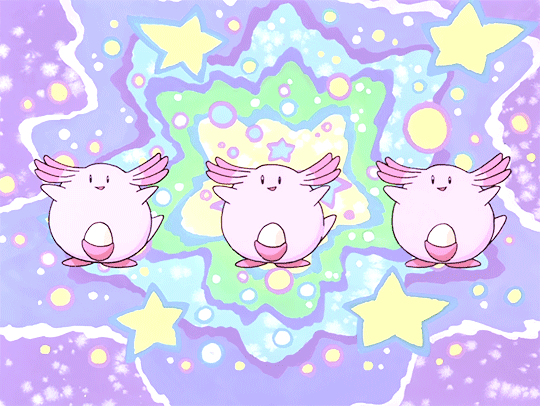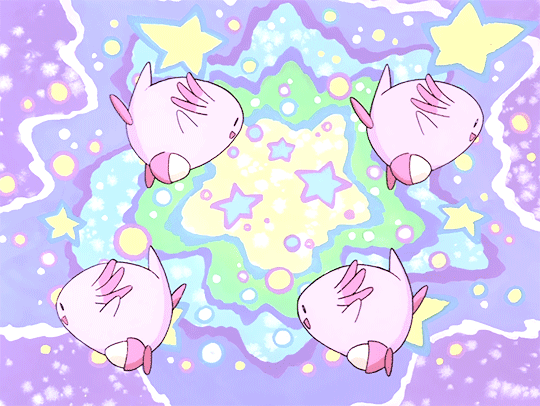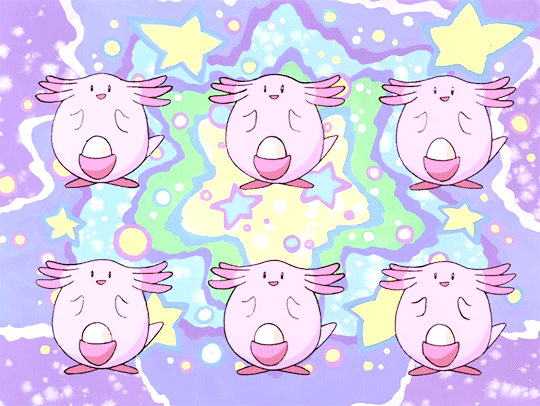System sideblog for the Synchronicity Collective. Enjoy your stay.
Don't wanna be here? Send us removal request.
Video
“Chipmunk tasting almonds for the first time”
(via)
52K notes
·
View notes
Text
thoughts on the origins of systems
To start us off: we are firmly pro-endo. The point of this post isn't to argue that endogenic systems exist and are valid - assuming that systems of any and all origins are valid is only the starting point to our argument.
The question we've been asking ourselves a lot recently is: does dividing systems based solely on their origins even make any sense at all in the long run?
The answer we've come to is: no, not really. The terminology itself is still useful, but more so when talking about origins of a single headmate, as opposed to the entire system. And if you're confused by that conclusion, then I encourage you to read the rest of this post below the cut.
Let me start be going through an example. Let's say that we're discussing a pretty newly-discovered traumagenic system. The term seems to suit them perfectly - there's a high chance that whatever trauma caused them to develop in the first place is still ongoing, and therefore every development inside their system will be tied to trauma in some way, because pretty much their entire life is. That situation is simple enough. But what happens when that system manages to escape the traumatic circumstances that have formed them? What happens when, after months or years of healing, most of their traumaholders either went dormant or processed their trauma and developed past their original purpose? If that system's recovery did not include final fusion as their final goal, they will still be a system. It is likely that new life situations will cause them to develop new headmates, headmates that will have nothing to do with the original origins of the system. After decades, most of the active headmates may have experiences way closer to those of the members of endogenic systems, because, in a sense... Those headmates would be endogenic. In situations like those, does it really make sense to define each system by merely the very beginning of their journey?
Something very similar can happen in reverse. When an endogenic system experiences trauma, it is likely that new headmates will form, and the experiences of those headmates may closely much those of traumagenic systems. But unless the entire system redefines themselves as being of mixed origins, any traumagenic-focused spaces, where they could search for community's support, would be closed off to them. Even if they would make the change to the label of mixed origins, many spaces will still reject them. But how does that make any sense? Why would we focus only on the moment of birth of one's system, when what shapes their experiences is their entire life?
The same argument may be made for willogenic and spiritual-based systems. Willogenic systems are capable of splitting new headmates completely unintentionally, just like systems of other origins are capable of constructing new headmates with the help of willogenic guides. Spiritual-based systems can gain new headmates 'just because', and due to trauma, and through constructing them, and in any other way, just as many systems of other origins have headmates that summon in new self-aware companions through their spiritual practices. Why would we pretend that the entire system has to fit its original label, as if systems weren't made up of living, breathing things, changing with each day as is in the nature of the living things?
Why are we, as a community, often so determined to see the forest for its first tree's single seed?
81 notes
·
View notes
Text
@funnier-as-a-system
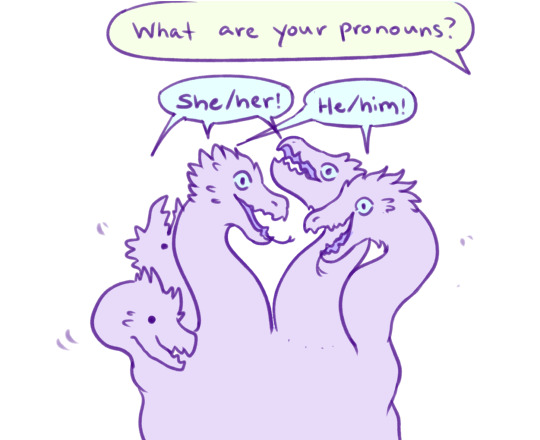
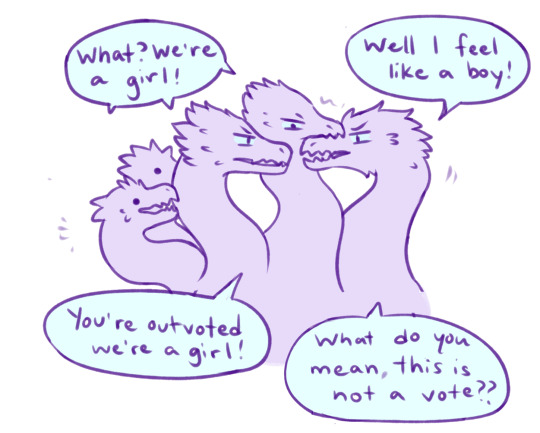
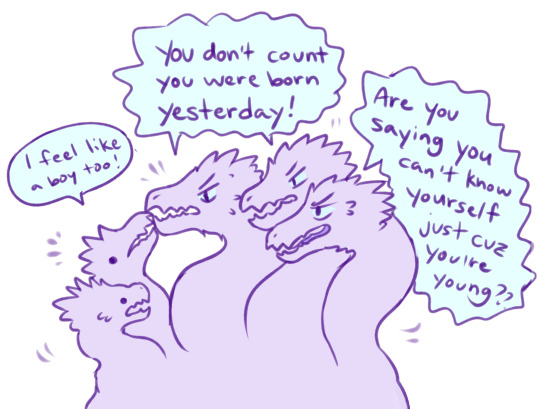
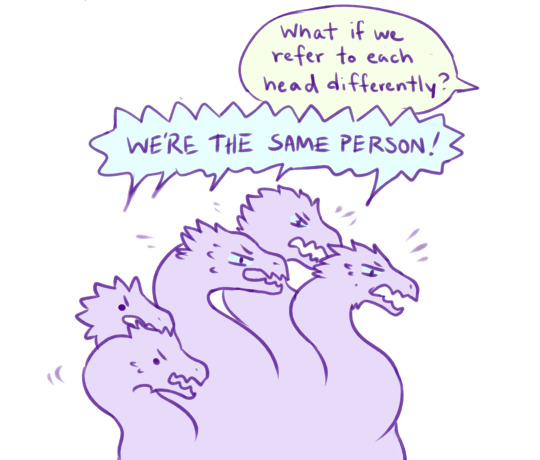
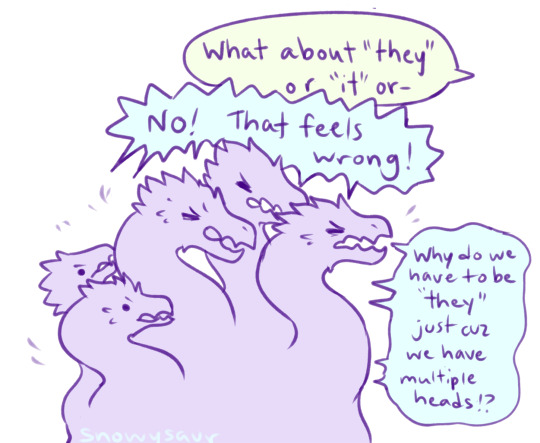
hydra pronouns -----part 2-----
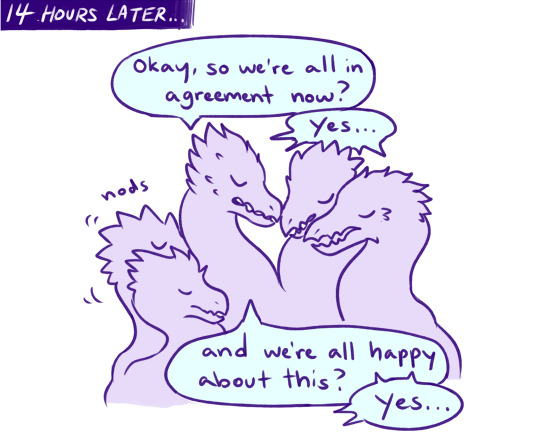

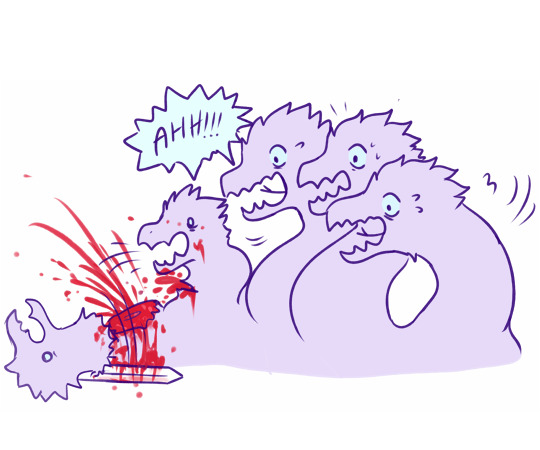
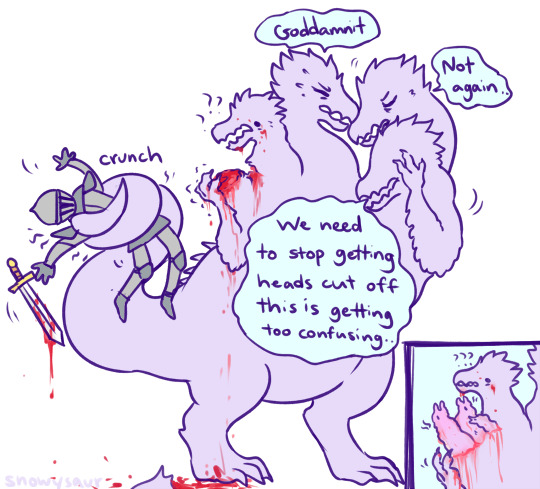
-----part 3-----
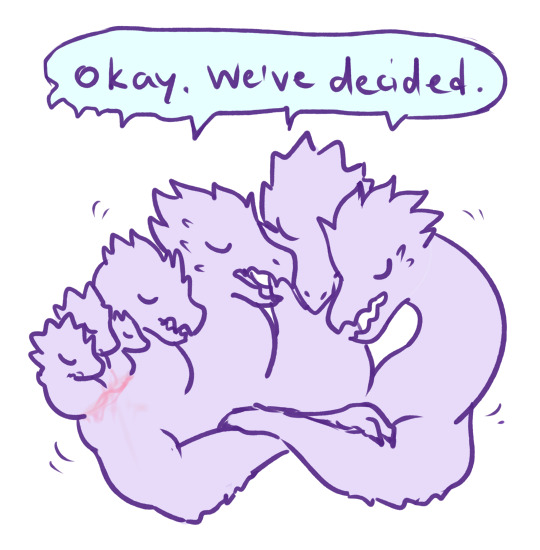
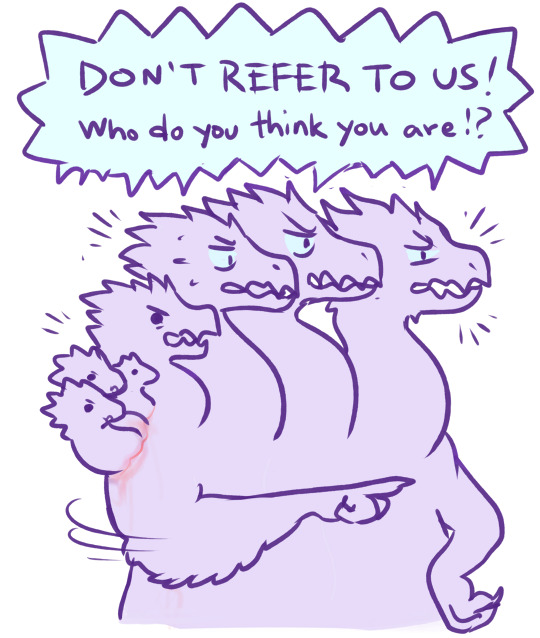
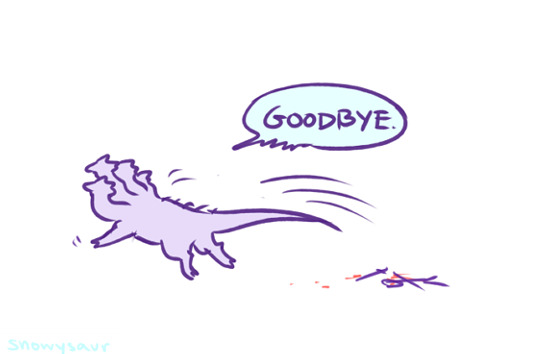
support me on: patreon | kofi | redbubble
5K notes
·
View notes
Text
I say "oh don't worry he doesn't bite" and you're confused because you don't see any dog but then you notice a single inchworm moving purposefully across the floor towards you at an alarming pace
68K notes
·
View notes











